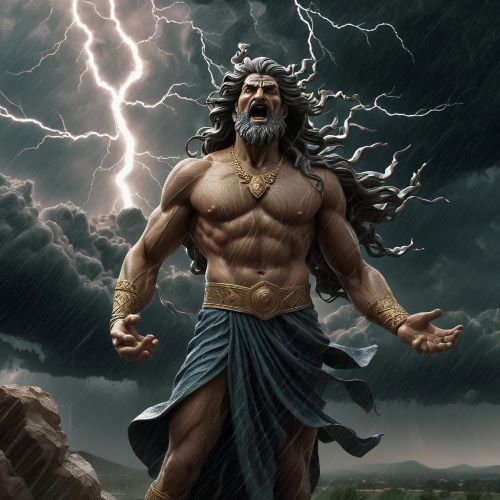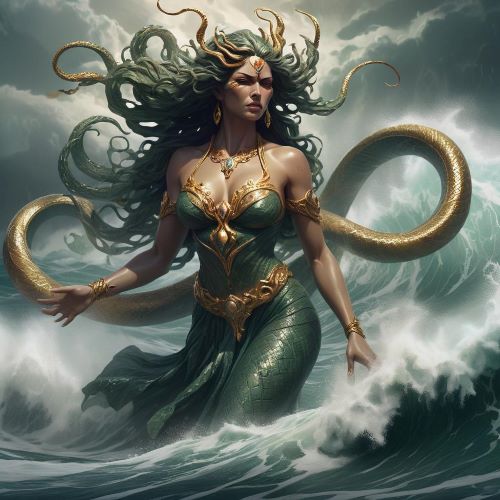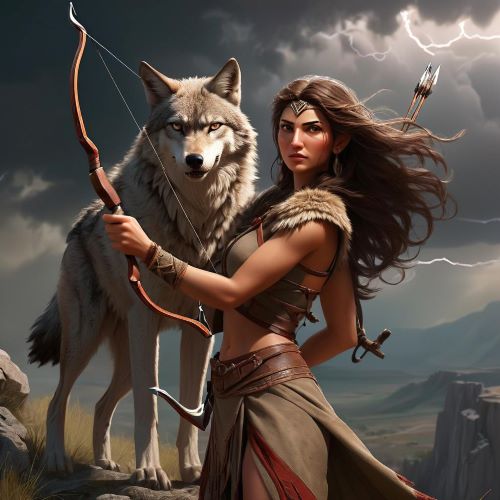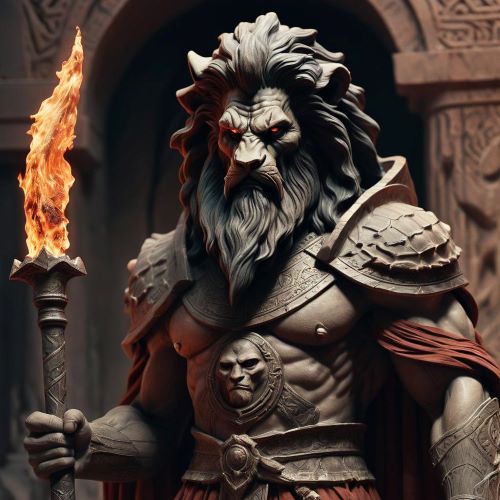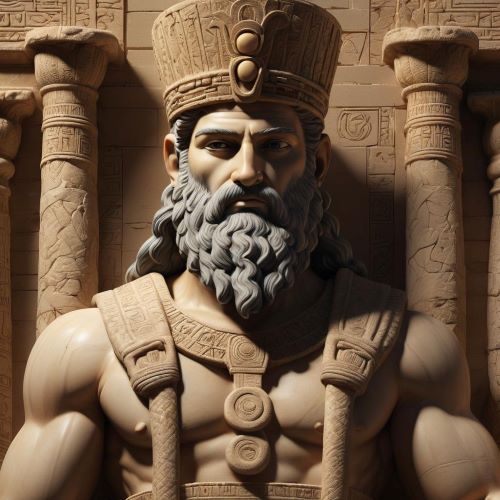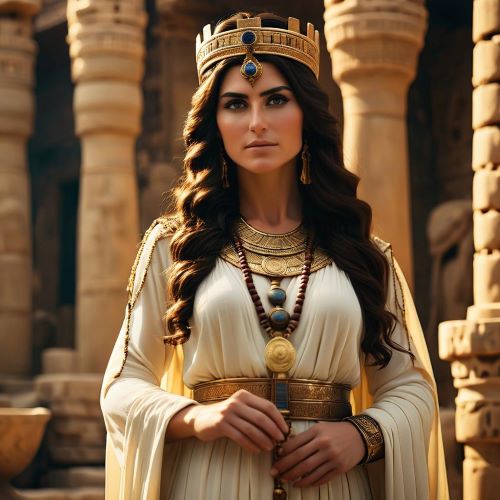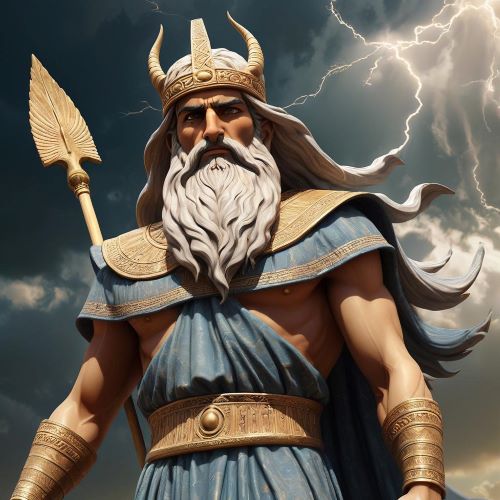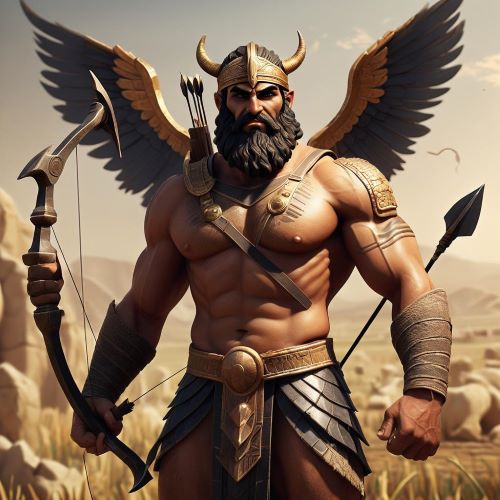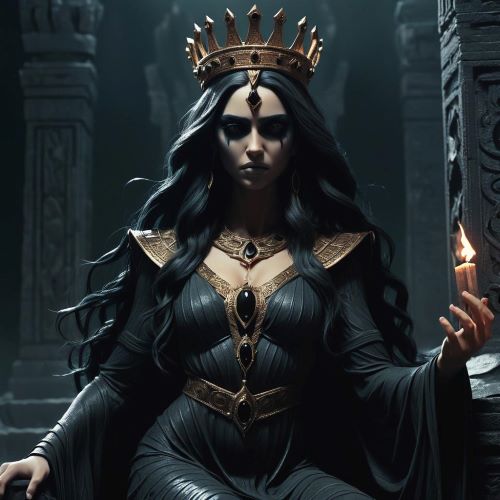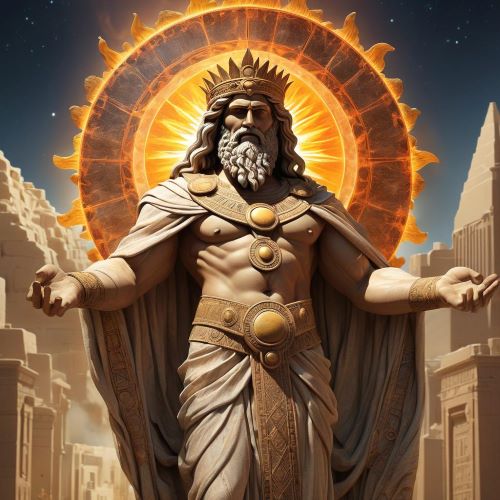Akkadian Gods form a crucial part of the rich tapestry of ancient Mesopotamian mythology, representing divine beings who influenced every aspect of life in Akkadian society. These gods were revered for their control over natural elements, social order, and human destiny, embodying the values and beliefs of a civilization that laid the foundation for subsequent cultures in the region. The Akkadian pantheon, derived from the earlier Sumerian deities, showcases a blend of characteristics that reflect the complexity of human experiences, aspirations, and fears, serving as a powerful connection between the divine and the mortal.
Among the most prominent Akkadian Gods is Marduk, the patron deity of Babylon, celebrated for his role as a god of creation, wisdom, and justice. Marduk’s epic narrative is encapsulated in the Enuma Elish, where he battles the primordial chaos represented by Tiamat to establish order in the universe. This victory not only highlights Marduk’s strength but also symbolizes the triumph of civilization over chaos, making him a central figure in Akkadian worship. His attributes as a wise and just ruler resonate deeply with the values of governance and societal structure, illustrating how the Akkadians sought divine guidance in their quest for stability and prosperity.
Another significant figure is Ishtar, the goddess of love and war, known for her dual nature that encompasses both nurturing and destructive qualities. Ishtar’s complex character is reflected in her stories of passion, vengeance, and empowerment. She plays a crucial role in various myths, such as the epic of Gilgamesh, where her infatuation with the hero leads to significant consequences. Ishtar embodies the themes of desire and conflict, showcasing the ways in which love can inspire both creativity and turmoil. Her worship was widespread, reflecting the essential balance between the forces of creation and destruction in human experience.
The Akkadian Gods also include Enlil, the god of air and storms, who was considered one of the most powerful deities in the pantheon. Enlil’s influence over the elements and his authority in matters of fate made him a key figure in Akkadian spirituality. He was often invoked for blessings in agriculture and protection from natural disasters. His dual role as both a creator and a destroyer illustrates the unpredictable nature of existence, prompting followers to seek his favor through rituals and offerings to ensure harmony and stability in their lives.
Additionally, gods like Ninurta, the god of agriculture and war, and Shamash, the sun god associated with justice, played vital roles in the daily lives of the Akkadian people. Ninurta’s legends reflect the importance of agriculture in sustaining civilization, while Shamash’s emphasis on justice and truth highlights the moral framework that guided Akkadian society. These deities were not only revered for their divine powers but also seen as embodiments of the ethical values that underpinned communal life.
Today, the legacy of Akkadian Gods continues to captivate scholars, historians, and enthusiasts of mythology. Their stories provide invaluable insights into the beliefs and practices of one of the world’s earliest civilizations, revealing the ways in which ancient peoples understood their world and their place within it. As contemporary audiences explore these narratives, the themes of power, love, justice, and the relationship between humanity and the divine remain relevant, allowing us to draw connections between the past and present. The Akkadian Gods, with their rich stories and complex characters, invite us to reflect on the enduring nature of myth and its ability to shape cultural identity through the ages.
Akkadian Gods form a crucial part of the rich tapestry of ancient Mesopotamian mythology, representing divine beings who influenced every aspect of life in Akkadian society. These gods were revered for their control over natural elements, social order, and human destiny, embodying the values and beliefs of a civilization that laid the foundation for subsequent cultures in the region. The Akkadian pantheon, derived from the earlier Sumerian deities, showcases a blend of characteristics that reflect the complexity of human experiences, aspirations, and fears, serving as a powerful connection between the divine and the mortal.
Among the most prominent Akkadian Gods is Marduk, the patron deity of Babylon, celebrated for his role as a god of creation, wisdom, and justice. Marduk’s epic narrative is encapsulated in the Enuma Elish, where he battles the primordial chaos represented by Tiamat to establish order in the universe. This victory not only highlights Marduk’s strength but also symbolizes the triumph of civilization over chaos, making him a central figure in Akkadian worship. His attributes as a wise and just ruler resonate deeply with the values of governance and societal structure, illustrating how the Akkadians sought divine guidance in their quest for stability and prosperity.
Another significant figure is Ishtar, the goddess of love and war, known for her dual nature that encompasses both nurturing and destructive qualities. Ishtar’s complex character is reflected in her stories of passion, vengeance, and empowerment. She plays a crucial role in various myths, such as the epic of Gilgamesh, where her infatuation with the hero leads to significant consequences. Ishtar embodies the themes of desire and conflict, showcasing the ways in which love can inspire both creativity and turmoil. Her worship was widespread, reflecting the essential balance between the forces of creation and destruction in human experience.
The Akkadian Gods also include Enlil, the god of air and storms, who was considered one of the most powerful deities in the pantheon. Enlil’s influence over the elements and his authority in matters of fate made him a key figure in Akkadian spirituality. He was often invoked for blessings in agriculture and protection from natural disasters. His dual role as both a creator and a destroyer illustrates the unpredictable nature of existence, prompting followers to seek his favor through rituals and offerings to ensure harmony and stability in their lives.
Additionally, gods like Ninurta, the god of agriculture and war, and Shamash, the sun god associated with justice, played vital roles in the daily lives of the Akkadian people. Ninurta’s legends reflect the importance of agriculture in sustaining civilization, while Shamash’s emphasis on justice and truth highlights the moral framework that guided Akkadian society. These deities were not only revered for their divine powers but also seen as embodiments of the ethical values that underpinned communal life.
Today, the legacy of Akkadian Gods continues to captivate scholars, historians, and enthusiasts of mythology. Their stories provide invaluable insights into the beliefs and practices of one of the world’s earliest civilizations, revealing the ways in which ancient peoples understood their world and their place within it. As contemporary audiences explore these narratives, the themes of power, love, justice, and the relationship between humanity and the divine remain relevant, allowing us to draw connections between the past and present. The Akkadian Gods, with their rich stories and complex characters, invite us to reflect on the enduring nature of myth and its ability to shape cultural identity through the ages.

